Early Settlers of Snow Hill / Kolokee

Nestled in rural Seminole County, next to the Little Big Econ State Forest, Snow Hill’s identity hangs on by a thread. A few dozen homes and a green highway sign provide the only indication of the community’s long history.
Early Homesteaders
Henry and Sarah Detreville moved from South Carolina to settle on the Econlahatchee River in 1905. Henry named the farm “Snow Hill” since he thought the sloping, white sandy shores along the river resembled snow-covered hills.
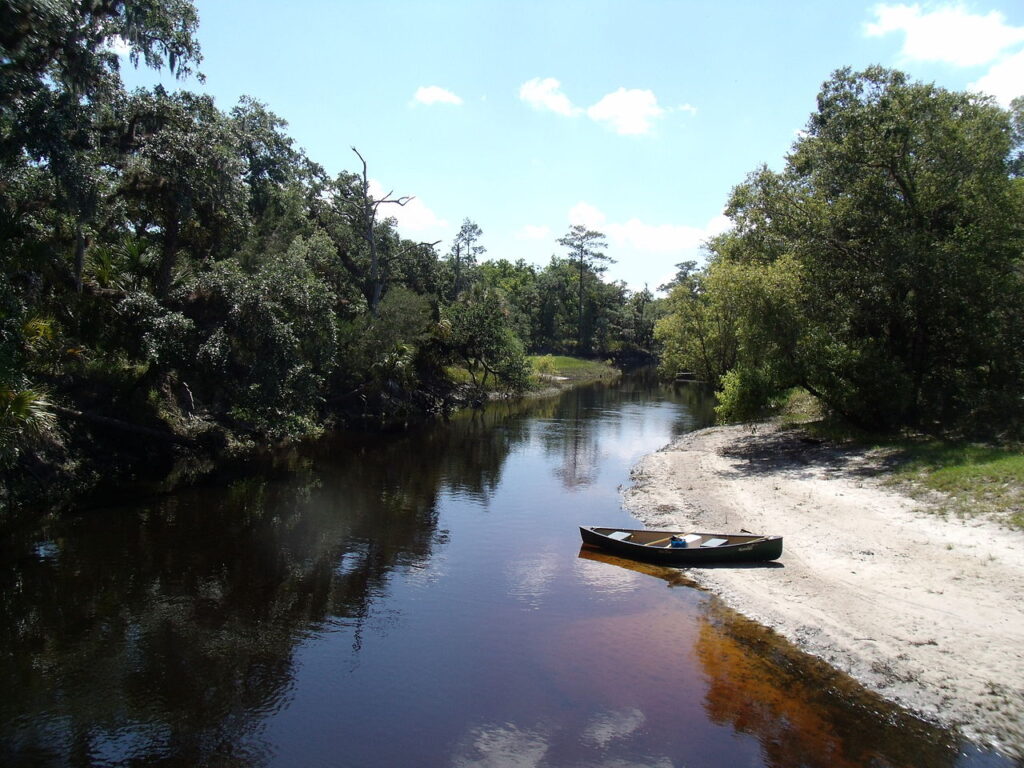
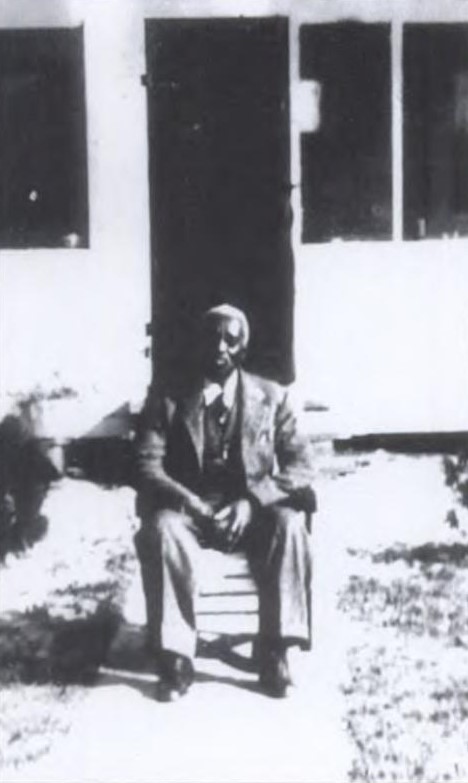
Many black families moved from other southern states to Florida around the turn of the century. The state’s agriculture industry was blowing up, offering plentiful jobs in the citrus, turpentine, and lumber industries. Other families around Snow Hill included Preston and Minnie Flowers, Newton and Melissa Bacon, Samuel and Henrietta Terrell/Tarrant, Emanuel and Sarah Bush (daughter of Peter Detreville), the Butlers, Sandy Kemps, E. J. Thompson, and the Grants.
Another motivation was Florida’s still unclaimed land available under the Homestead Act of 1864, which offered up to 160 acres to homesteaders who lived on and improved the land. Several Snow Hillers were successful in their bids for land grants during the 1910s: Detreville (80 acres), Flowers (160 acres), Bush (160 acres), Bacon (156 acres), Tarrant (160 acres), Paul (77 acres), and Whitney (160 acres).
These original homesteads were south of the current town–what residents called “Old Snow Hill.” Most later relocated their homes about a mile north to “New Snow Hill,” along Snow Hill Road and south of Old Mims Road.
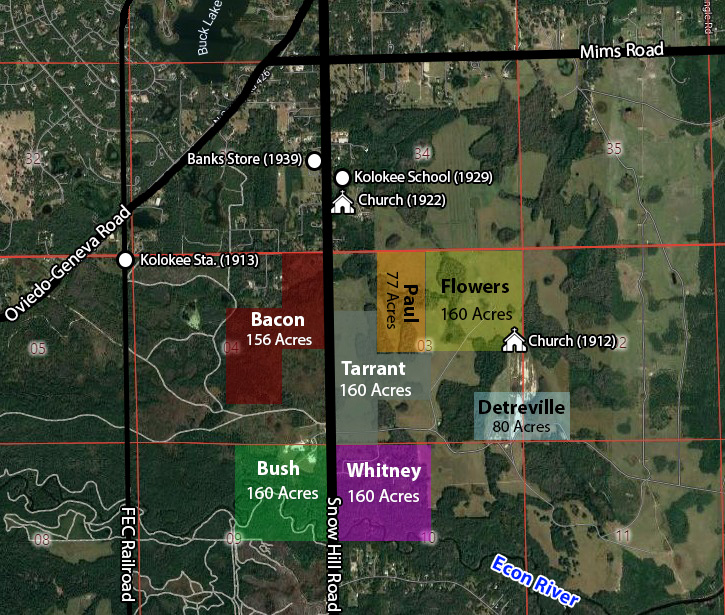
Snow Hill Baptist Church
Detreville built a brush arbor church at his Snow Hill farm to serve the growing black population. He invited pastors from nearby towns to preach to the rural population. Services were initially sporadic, once or twice a month. Early preachers included Frank Miller of Oviedo, Nelson V. Kirkland, and W. M. McMillan of Geneva. The congregation was officially formed on July 4, 1909, as the Snow Hill Missionary Baptist Church.
They moved into a small box-like structure in 1912 at “Old Snow Hill” on the Flowers property. The Flowers donated one acre for the church in the southeast corner of their land. Today the Flowers and Detreville grants are within the massive Yarborough Ranch that spans 1,314 acres east of Snow Hill Road. The only thing left of the original church is a small cemetery with one documented burial: Private Jennings Handy, the stepson of the Terrells, who died of disease during his service in World War I.
In 1920 Detreville added another 40 acres of land to his farm. It was further north, along the sandy path connecting Geneva and Chuluota. Henry donated a small parcel of that property to the church, and a small chapel was constructed the following year under the Reverend E. J. Peacock.
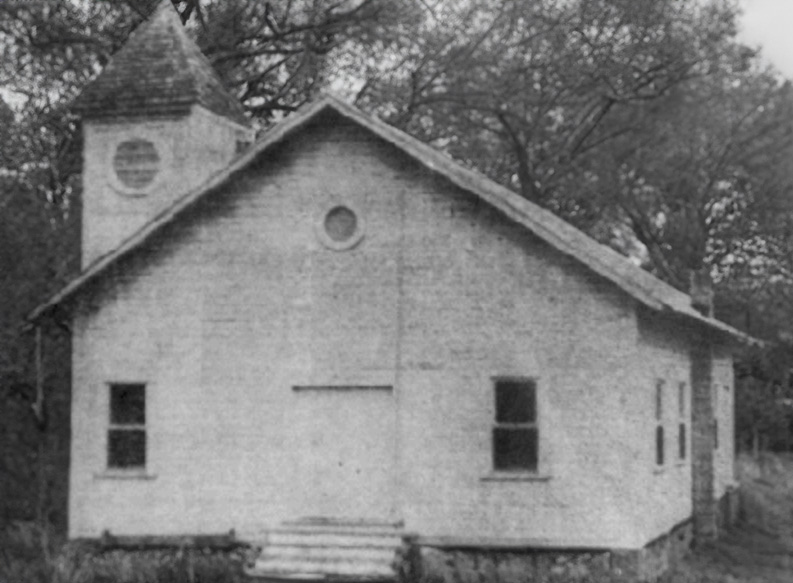
That building was replaced with a larger church in 1933 under pastor A. J. Shaw. It was an A-frame building with a vaulted roof, a bell tower, and a brick chimney. It had gas-powered lighting inside in the early days before electric lights were run years later. The congregation conducted baptisms at a small lake north and west of the church called Horse Pond.
Renovations and improvements continued from 1944 to 1957, while Rev. C. J. Jackson was the pastor. Over the following decades, the building’s appearance was significantly altered. The bell tower was removed, the roof was lowered, and a front porch was added, making it almost unrecognizable.

The church celebrated its 100th Anniversary in 2009, still using the building from 1933. Sadly, the church dissolved over the next decade and was torn down around 2020.
Kolokee Depot
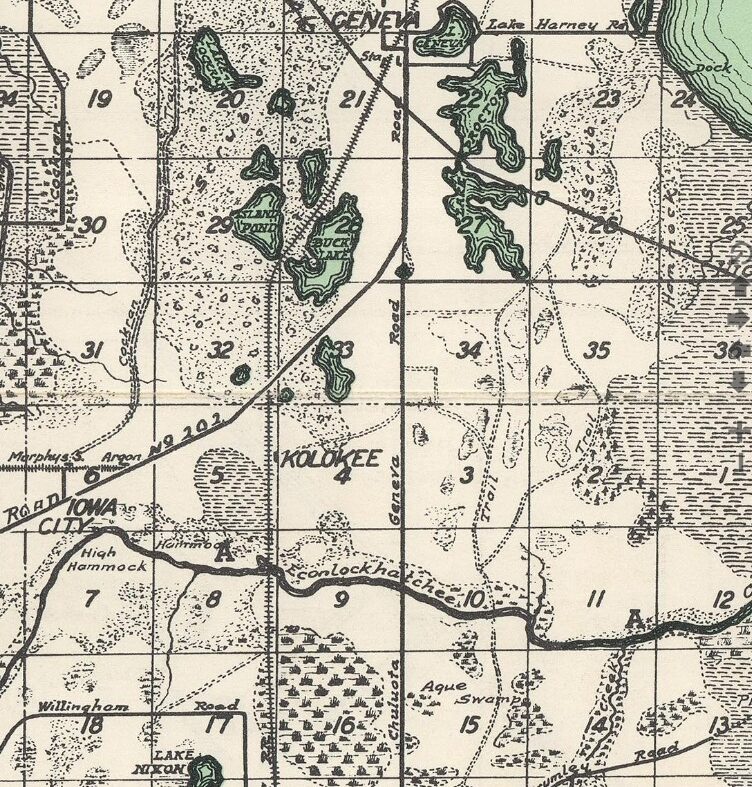
In 1913, Henry Flagler constructed a branch of the Florida East Coast through the area, with stops at Geneva and Chuluota. The railway bypassed Old Snow Hill by about two miles mile to the west. Flagler added a small depot halfway between Geneva and the Econ River and called it Kolokee.
During this period, Seminole tribe-inspired names were quite trendy; they had an exotic and romantic sound to them. Many of Flagler’s new railroad stops followed this convention. Kolokee was reported to mean “light” or “lantern.”

The migration west from Old Snow Hill to New Snow Hill was prompted by the gravity of closer proximity to the train tracks. It made produce and livestock much easier to get to market. A post office, also labeled Kolokee, was added in 1915 beside the train depot.
A cluster of small buildings developed around the post office and depot, mainly temporary housing for railroad workers, turpentine, and sawmill operations there. Some of the old boxcars were modified to serve as family homes. Many residents around the depot were the white managers of these institutions.
For the next thirty years, the name Kolokee began to supplant Snow Hill. The church was called Kolokee Missionary Baptist for a while, and the school was called Kolokee School.
But the Kolokee era did not last. The collapse of the Great Florida Land Boom, followed by the Great Depression, sent land values plummeting. Many white investors who had bought near the depot were forced to sell at fire sale prices. Some black homesteaders also began to sell off portions of their land grants.
The railway survived the Great Depression, but by the 1940s, the jobs began to dry up fast. The usefulness of the Kolokee depot declined, even as a flag stop. The closing of the Osceola lumber mill in 1940 was the beginning. The celery industry lagged, and the demand for turpentine began to wane.
The Seminole County branch of the Florida East Coast Railroad closed soon after, and the tracks were removed in 1947. After that point, the use of Kolokee faded, and folks reverted to using the original name to refer to the area between Geneva and Chuluota, Snow Hill.
Kolokee Schoolhouse
The first schoolhouse at Kolokee/Snow Hill was donated on November 6, 1928, by Henry Detreville, just south of the church. The school was enlarged around 1935 on land donated by Reverend A. J. Mullter on the north side of the church. Both interactions of the structure were a simple one-room design.
Some of the teachers over the years were Evelyn Wiggins, Jennie McPherson, Jannie Jackson, Margaret Dixon, Susie Blacksheare Harrington, Lillie Robinson Hall, Bessie Franklin, and Freddie Mobley. The school closed in 1953, and the local children were transported to Oviedo Elementary School. The building was moved to Goldsboro Elementary in Sanford.
Banks Family and Grocery Store
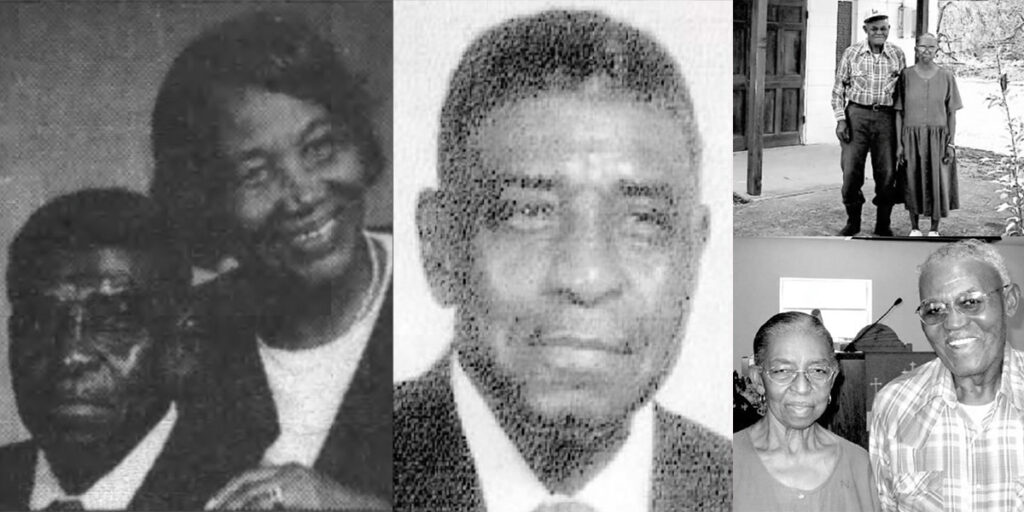
Ossie Sr. and Viola Banks moved with their young family to Snow Hill in 1925 from Leslie, Georgia. Ossie was told by a friend, “Come down here; they’re picking money off trees!” They meant the orange trees since the jobs were plentiful picking groves then. Banks also found work at the colossal saw operation at Osceola, a ghost town on the St. Johns River.
The Banks had three children: Ossie Jr, Eula, and Eddie. They quickly became prominent members of the town. In 1939, they opened the town’s only store, a combination grocery store/gas station. Old-timers recalled a big jar of cookies in the store, two for a penny!

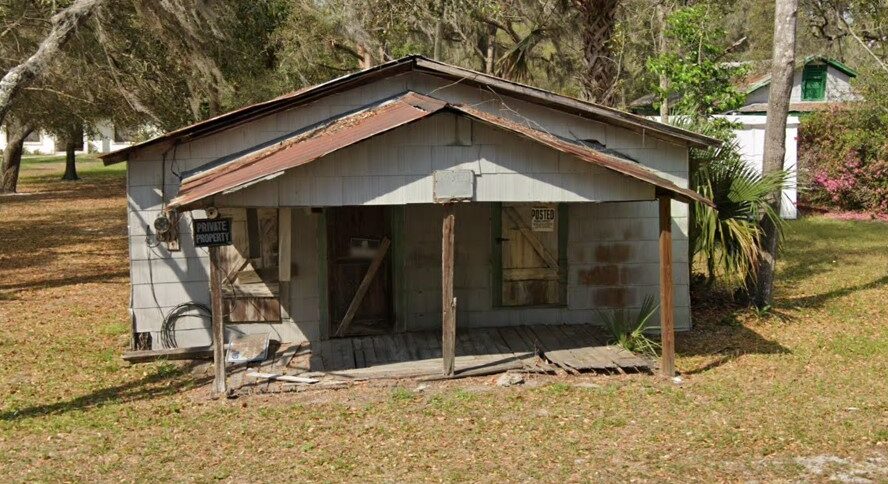
The original gas pumps featured a tank on top that measured the fuel, allowing gravity to drain it into the car. They later updated to more modern pumps, but increasing state regulations to keep them up to code were too costly. Eddie Banks ran the shop for many years, but was forced to close the shop after over fifty years in business in the 1990s. The building still stands.
Ossie Sr. died of cancer in 1962, and Jr lived until 2002. The Banks’ descendants still live in houses around the old store. The family and other locals are often associated with another church, Oak Grove Missionary Baptist, located west of Geneva. I’ll save that story for another day!
Legacy of Snow Hill
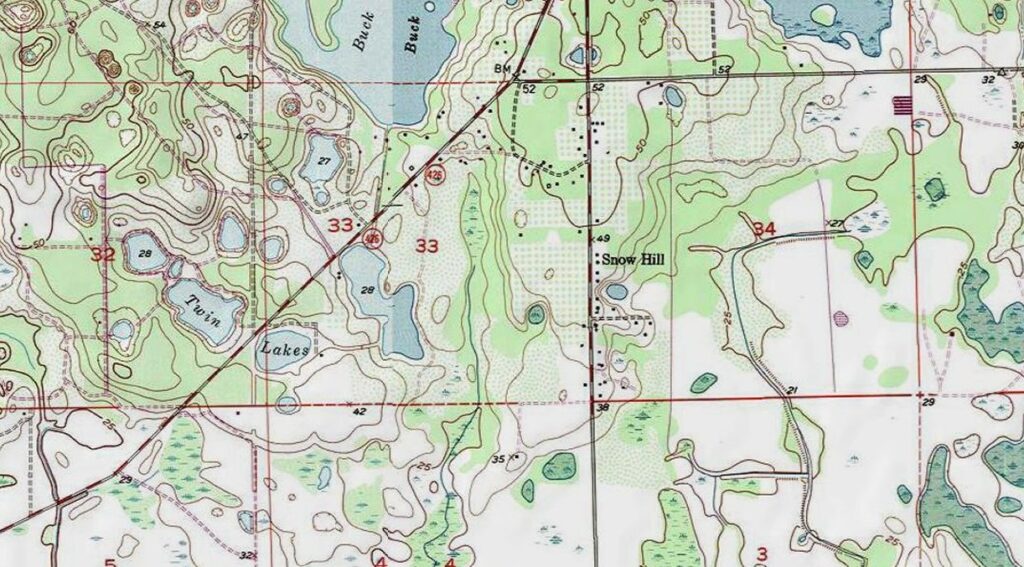
Well into the 1990s, the community was still a well-defined historically black community, but its identity has become obscured in recent decades. Most of the vast holdings once owned by the early black settlers have been sold off over the years; this process began in the late 1920s with the Great Depression.
Some original families still hold on to smaller plots parceled among the generations. Among the property owners with homes in Snow Hill, we still find lineages that trace back a hundred years or more in the community. These include Thompson, Blake, Witherspoon, Banks, Miller, Lingard, Stone, Earnest, and surely some others that I’m unaware of (many being married names). However, most of the descendants left the rural settlement.
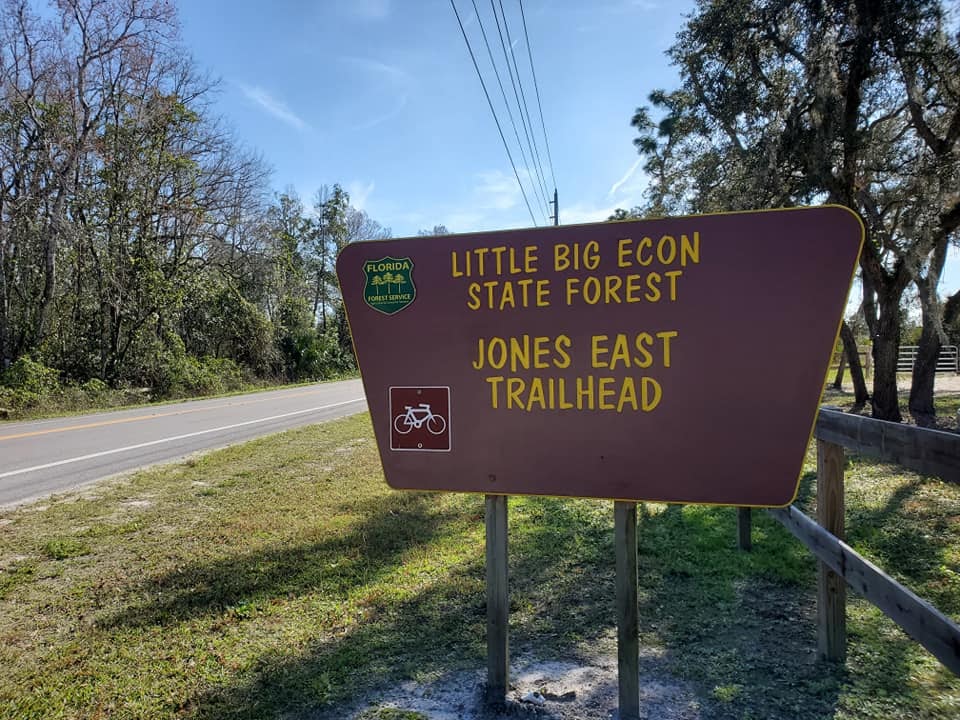
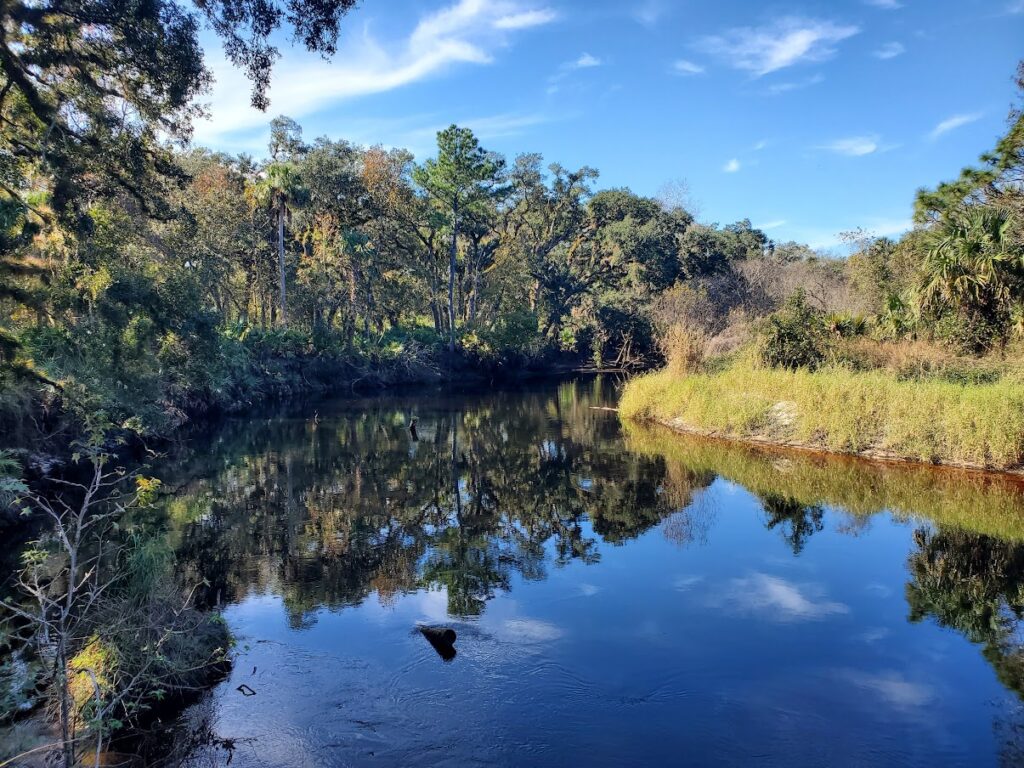

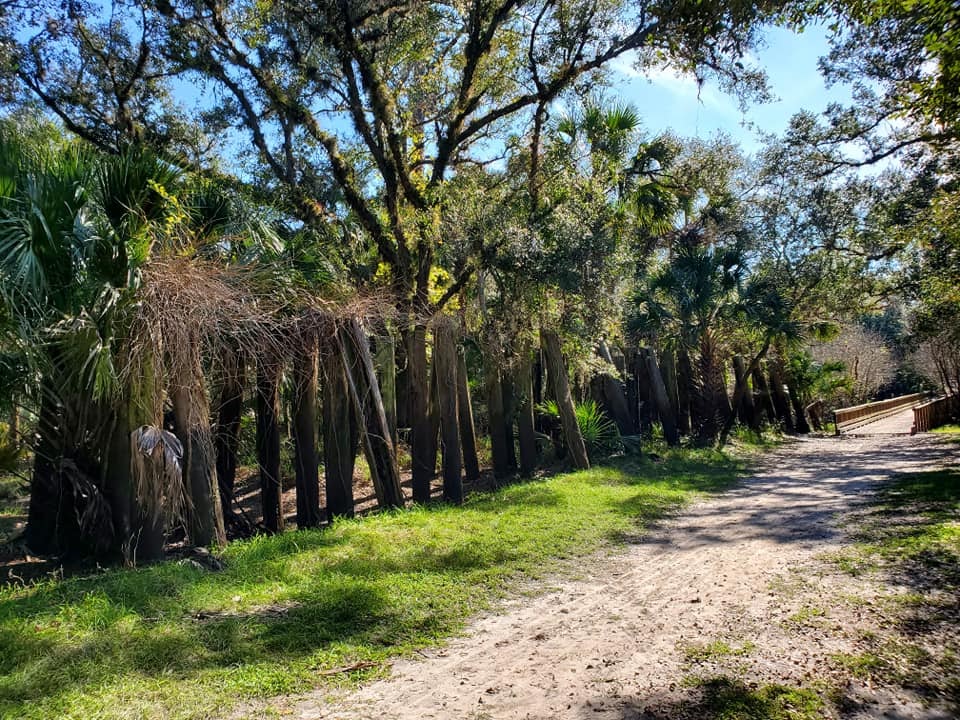
Today, the name is kept alive mainly by its namesake, Snow Hill Road and the Kolokee Trail.
Much of the property has been preserved as state and county land, including the old Flagler Trail that marks the rail grade, as part of the Little Big Econ State Forest and Geneva Wilderness area. This is such a beautiful place to hike!
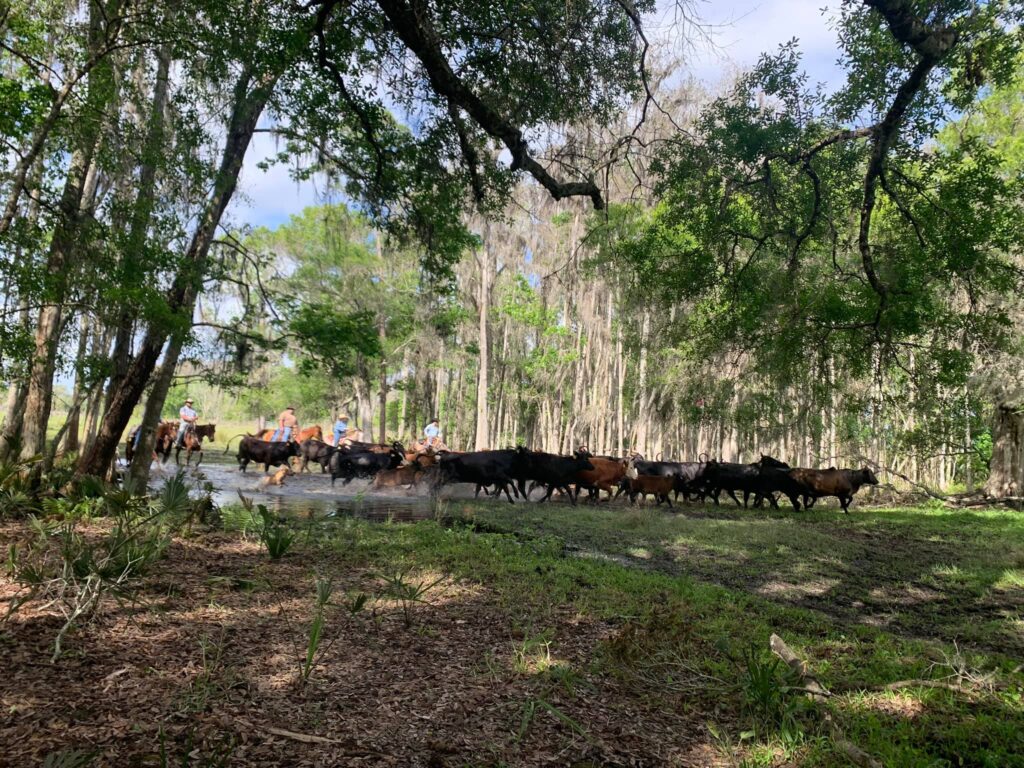
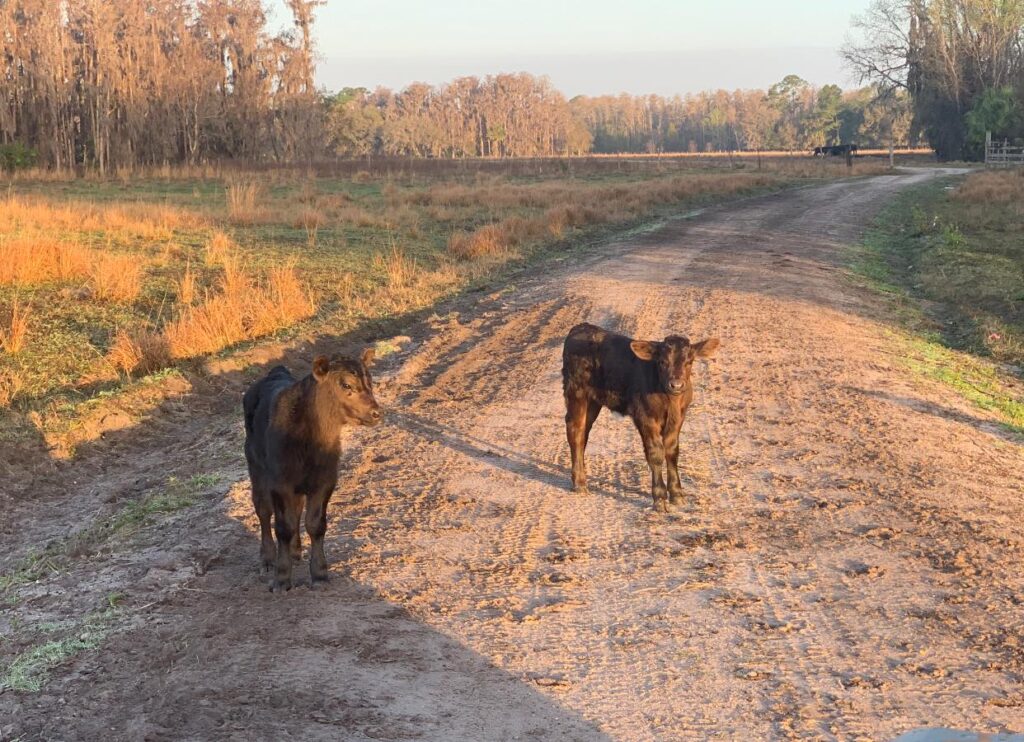
The Yarborough Ranch was founded in 1954 and once contained 8,000 acres of ranchland. Much of it has been preserved by the foresight of the family. However, the remaining 1,300 acres of the Yarborough Ranch are currently at risk of development. This includes the original homesteads of Old Snow Hill (Detreville, Flowers, Paul, and Tarrant), the original church site, and its old cemetery.
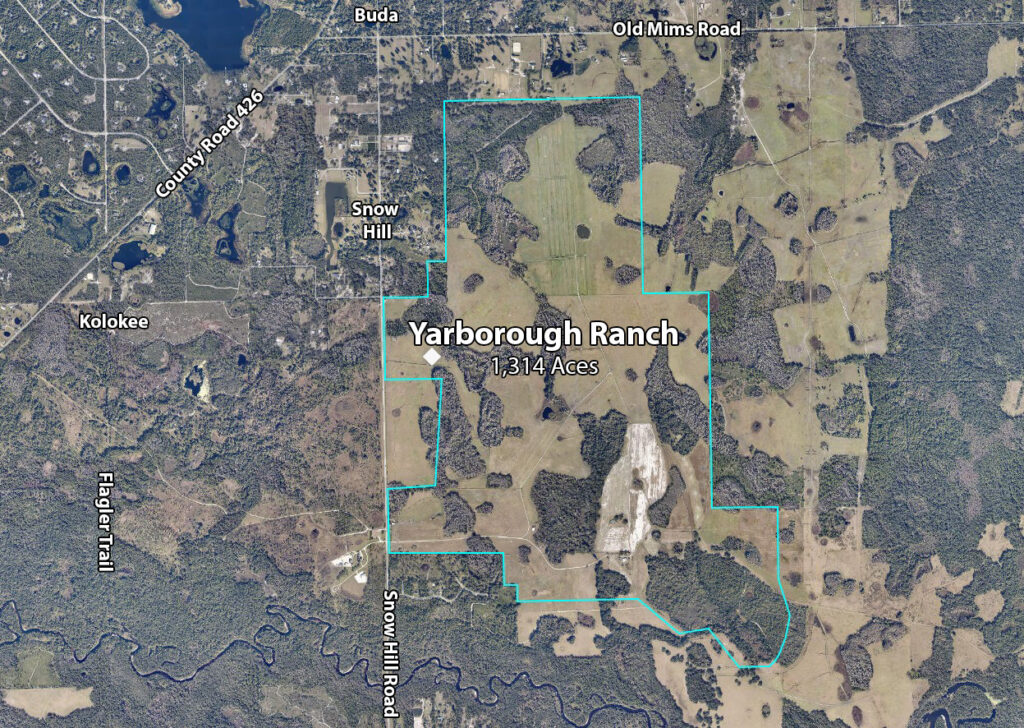
Developers are chomping at the bit to turn it into a 300-home community. The Yarborough family wants to sell (and would prefer that to be permanently public land). The county and activists are working to raise the $34 million needed to buy it for preservation. They are working with the state government and Forever Florida to find the funds before it’s too late. Let’s hope they succeeded!
References
- Snow Hill Missionary Baptist Church info (Gen Net)
- Seminole County (Black America), book by Altermese Smith Bentley
- Orlando Sentinel clippings: Snow Hill, Kolokee
- A Written and Pictoral History of the Oviedo Area Colored Schools, book
- Extinct Towns of the Geneva area
- Orange County Comptroller Document Search
- Bureau of Land Management
- Florida Memory – Snow Hill Baptist
- Geneva Area Schools
- Geneva Timeline
- Time for a change (Orlando Sentinel)
- Seminole County Property Search
- Topographical Map
- 1951 Map
- Property owners: Section 33, Section 34
- Yarborough Ranch potential development
- Yarborough Ranch Facebook Page
- Little Big Econ State Forest


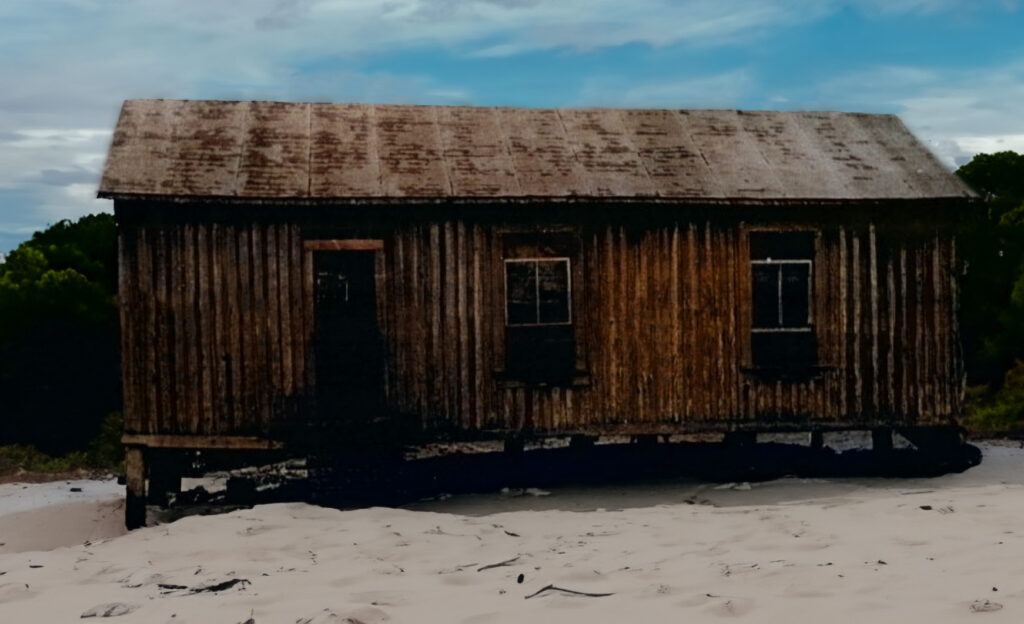
This post is 966 days old. Comments disabled on archived posts.